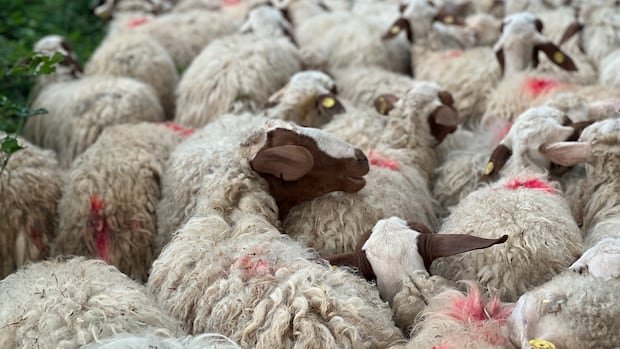On a breezy fall day, the undulating hills near Rome hosted a unique gathering. Wool producers, designers, activists, and notable figures like Isabella Rossellini and her daughter convened at Ilaria Venturini Fendi’s farm. The focus was not on high-end fashion but on reimagining the industry.
Fendi, who oversees 600 sheep at her agriturismo on the outskirts of Rome, highlighted the challenges of wool production in Italy. She emphasized the need for a shift in mindset to reshape economies as wool processing costs often surpass the benefits, leading to wastage in Europe and North America.
The event marked the inaugural World Hope Forum, dedicated to showcasing that wool production can be sustainable, ethical, and locally driven. Fendi, known for her luxury background as part of the renowned Italian fashion family, founded Carmina Campus, a brand centered on reuse and regeneration.
The gathering preceded the UN’s upcoming International Year of Rangelands and Pastoralists in 2026, stressing the importance of safeguarding traditional herding cultures and natural fibers. Additionally, it preceded the EU Focus Group meeting on enhancing the European wool value chain sustainably.
Blátnaid Gallagher, the founder of Ireland’s Galway Wool Co-op, joined the forum to advocate for clearer fiber origin regulations within Europe. Such regulations would enable consumers to trace the origin of fibers, reducing reliance on Chinese wool and supporting local farmers.
Cynthia Hathaway, a designer based in the Netherlands, highlighted the value of Europe’s shepherding cultures through her Wool March initiative. This slow activism involves leading sheep through cities to raise awareness about the ecological and cultural significance of wool.
Experts at the gathering expressed optimism about a resurgence in natural fibers but stressed the need for enhanced protections for producers and animals. Currently, less than one percent of global textile fibers come from wool, leading to the decline of local processing operations in Europe and North America.
To combat this trend, initiatives like Ovinge’s Knit Wit Stable in the Netherlands have established micro-supply chains to sustain wool production. These chains involve on-farm shearing, sorting, and processing before bringing the yarn back for knitting, supporting local economies and preserving traditional wool craftsmanship.


